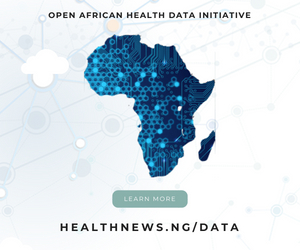On Valentine’s Day Feb 14, health authorities in Guinea declared an outbreak of Ebola in the rural community of Gouéké in N’Zerekore prefecture after three Ebola cases were confirmed by the national laboratory, marking the first time the disease has been reported in the country since an outbreak ended in 2016.
A week earlier, the Ministry of Health of the Democratic Republic of the Congo (DRC) on Feb 7 announced that a new case of Ebola has been detected in Butembo, a city in North Kivu Province, where a previous outbreak was declared over in June 2020.
In Guinea, initial investigations found that a nurse from the local health facility died on 28 January 2021. Following her burial, six people who attended the funeral reported Ebola-like symptoms and two of them have died, while the other four have been hospitalized.
Guinea was one of the three most-affected countries in the 2014–2016 West Africa Ebola outbreak which was the largest since the virus was first discovered in 1976.
“It’s a huge concern to see the resurgence of Ebola in Guinea, a country which has already suffered so much from the disease. However, banking on the expertise and experience built during the previous outbreak, health teams in Guinea are on the move to quickly trace the path of the virus and curb further infections,” said Dr Matshidiso Moeti, the World Health Organization (WHO) Regional Director for Africa. “WHO is supporting the authorities to set up testing, contact-tracing and treatment structures and to bring the overall response to full speed.”
In DRC which is dealing with its twelfth Ebola outbreak, the Butembo branch of the National Institute of Biomedical Research (INRB) confirmed Ebola in samples taken from a patient with Ebola-like symptoms who had sought treatment at a local health centre. The woman was the wife of an Ebola survivor. She has since died.
Butembo was one of the epicentres of the previous Ebola outbreak in eastern DRC. It is not unusual for sporadic cases to occur following a major outbreak.
Due to the enormous local capacity built in the previous outbreak, the North Kivu Provincial health authorities are leading the current response with support from the Ministry of Health and the World Health Organization (WHO). WHO provided training to laboratory technicians, contact tracers, local vaccination teams and reached out to community groups to raise Ebola awareness as well as put in place an Ebola survivor programme.
“The expertise and capacity of local health teams has been critical in detecting this new Ebola case and paving the way for a timely response,” said Dr Matshidiso Moeti, WHO Regional Director for Africa. “WHO is providing support to local and national health authorities to quickly trace, identify and treat the contacts to curtail the further spread of the virus.”
WHO in separate statements revealed its staff are already on ground in both countries providing support for the response efforts. In Guinea, WHO is supporting the country to procure the Ebola vaccine which has proven instrumental in controlling outbreaks in the DRC. While in DRC, WHO epidemiologists are conducting ground investigations including contact tracing coordinating the disinfection of sites visited by the first patient that was diagnosed.
















